FOCUS: 5th annual S.C. Reggae Jerk and Wine Festival is Aug. 26
COMMENTARY, Brack: Dick Riley reminds us what decency in leadership is all about
IN THE SPOTLIGHT: Charleston Gaillard Center
GOOD NEWS: S.C.’s Twiggs wins Gibbes’ 1858 Prize
WHAT WE LOVE: Tell us what you live in the Lowcountry
FEEDBACK: Reader loves news he can use
MYSTERY PHOTO: Distinctive green roof is memorable
S.C. ENCYCLOPEDIA: Gov. Richard W. Riley
CALENDAR: From a run and a show to art and wine
FOCUSFOCUS: 5th annual S.C. Reggae Jerk and Wine Festival is Aug. 26
By Herb Frazier, contributor | Celebrate Jamaica as you wine and dine at this charity event, the 5th Annual SC Reggae Jerk Wine Festival from noon to 7 p.m. on Sunday, Aug. 26, at Magnolia Plantation and Gardens. Sample the succulent taste of Jamaican jerk paired with wines while enjoying Reggae music. Guests receive a complimentary engraved 9-ounce wine glass to commemorate the event, as well as a complimentary jerk sample paired with wine.
Sway or dance to the sounds of reggae music performed by the Conscious Reggae Sensation Phorein, Sounds of Sand Steel Band and the Dubplates. Enjoy other activities like Jamaican Ludo and dominoes games, pepper eating contest and a great opportunity to network and learn about various wines. Entry to the festival entitles festival goers complimentary admission to stroll through the historic Magnolia Gardens.
 A portion of proceeds will go to benefit Healthy Lifestyle Network, a 501(c)(3) organization dedicated to helping children and adults in Charleston and to fight childhood sexual abuse in Jamaica. Donations of school supplies, soccer balls sizes 3 and 4, shin guards, arts and crafts, cotton fabric and hand quilting thread are welcomed.
A portion of proceeds will go to benefit Healthy Lifestyle Network, a 501(c)(3) organization dedicated to helping children and adults in Charleston and to fight childhood sexual abuse in Jamaica. Donations of school supplies, soccer balls sizes 3 and 4, shin guards, arts and crafts, cotton fabric and hand quilting thread are welcomed.
Advanced tickets are $40 per person including fees on Eventbrite. Ticket entitles purchaser to receive upon entry a wine glass, a sample of jerk chicken paired with a sample of wine, complimentary garden admission, wine tasting, wine presentation and access to vendors with various Caribbean foods, arts and crafts and 6 hours of live music by two Bands, Members of the Dubplates and the Jamaican sensation Phorein. Tickets for adult designated drivers and young adults less than age 21 years are $25, which also includes garden admission, but wine glass and wine tastings are not included. Tickets at the festival event gate, not the Magnolia kiosk, are $40 on the day of the event. Children under 12 are free, but no special preparations for the children will be included. Parking is free.
Coupons, discounts, complimentary passes and annual memberships to Magnolia are not valid for this event. Magnolia visitors must purchase a separate ticket for the jerk and wine festival.
- Click here for more information or click here to purchase tickets.
- Have a comment? Send to: editor@charlestoncurrents.com
BRACK: Dick Riley reminds us what decency in leadership is all about
By Andy Brack, editor and publisher | Good old-fashioned decency in political discourse is a rarity in these times of electronic and highly-partisan discontent.
 But good old-fashioned decency was on full display Aug. 6 in Columbia as the University of South Carolina commemorated the life and work of former Gov. and U.S. Secretary of Education Dick Riley during the official opening of his political collection. Part of it is now on public exhibition in the Ernest F. Hollings Special Collections Library and includes thousands of photographs, speeches, notes and more that give insights into Riley, a quiet lion of a leader.
But good old-fashioned decency was on full display Aug. 6 in Columbia as the University of South Carolina commemorated the life and work of former Gov. and U.S. Secretary of Education Dick Riley during the official opening of his political collection. Part of it is now on public exhibition in the Ernest F. Hollings Special Collections Library and includes thousands of photographs, speeches, notes and more that give insights into Riley, a quiet lion of a leader.
“Politics can be a wonderful thing and it can be an unpleasant thing,” Riley, now 85, told a crowd of more than 600 people gathered to honor him. “But I hope they will see in this exhibit, which will be a tremendous exhibit, that you can be a politician and be into issues and not bringing people down.”
Former President Bill Clinton tapped Riley to serve as his secretary of education in 1993 because of his success in moving South Carolina forward in education in the early 1980s. Riley and a dedicated band of supporters pushed through passage of the Education Improvement Act, which boosted teacher pay, improved accountability and pumped billions of dollars into public education over the last three decades.
Clinton wanted a change-maker like Riley to target education nationally.
“I believed that the future of the country depended upon our ability to educate everyone,” he said. “And I knew that he believed that ability is evenly distributed, but opportunity is not.”
The key to Riley’s long, effective leadership has been his decency and how he treats everyone, even those with whom he disagrees, as individuals, not enemies.
“When we give that up, we have given up everything that makes democracy possible,” the president said.
Clinton said Riley, one of the most widely-regarded and successful Cabinet officials of the 20th century, made good leadership look easy.
“Always had a smile on his face, always treating people like they were people.”
Riley, who declined an offer by Clinton to serve on the U.S. Supreme Court because he wanted to keep focusing on education, continues to push for education improvements. After serving eight years as education secretary, he returned to South Carolina and founded the Riley Institute at Furman University, which focuses on programs to improve schools, expand diversity and develop more principled leaders.
Riley said South Carolina leaders needed to renew a commitment to excellence in public education.
“The money we spend on K-12 [education] is low, obviously, in comparison with other states. It’s important to have a focus on trying to enhance that amount, but it’s important also, when you do that, to support interesting things like how, in a conservative way, do you operate schools, do you handle the administration of schools?” he said.
“The EIA was really a radical thing in its time. It was a movement, and I think we need another movement. I would like to see that right now.”
The still-active former governor also urged people to work together as a village, a nod to Hillary Clinton’s book, “It Takes A Village.”
“We all must continue to dream. And to work as a village together,” he said in closing remarks. “Work, remember this, for the public good. That says an awful lot.
“If all of us work for the public good, we’ll move in the right direction. I am absolutely convinced of that. Working toward peace, towards a happy, meaningful, healthy, safe life for everyone – and certainly a high-quality education for every single child and every adult in South Carolina and in Arkansas and throughout this great nation of ours.”
South Carolina and the nation need more leaders like Dick Riley today – Democrats, Republicans and independents who calmly collaborate, talk, share ideas, explore possibilities and work for lasting change to help everyone. In short, we need more people to be decent and act in the public interest. What we don’t need are more elected officials who operate in the safety of shadows, furtively punching mobile phones in the wee hours of the night.
- Have a comment? Send to: editor@charlestoncurrents.com
SPOTLIGHT: Charleston Gaillard Center
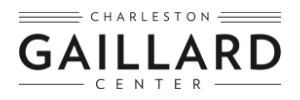 Charleston Gaillard Center provides the Lowcountry with a world-class performance hall, elegant venue space and vibrant educational opportunities that inspire dynamic community throughout the area through the power of the performing arts. The Center’s vision is to enrich the diverse community of Charleston with artistic and cultural experiences that are accessible and unique, and to serve as an educational resource for generations to come.
Charleston Gaillard Center provides the Lowcountry with a world-class performance hall, elegant venue space and vibrant educational opportunities that inspire dynamic community throughout the area through the power of the performing arts. The Center’s vision is to enrich the diverse community of Charleston with artistic and cultural experiences that are accessible and unique, and to serve as an educational resource for generations to come.
Did you know that the Charleston Gaillard Center is a 501c3 non-profit that works with over 25,000 students each year from the tri-county area? Promoting education is one of the core values of the Charleston Gaillard Center and an integral part of our mission. By broadening the reach of arts-education in the Lowcountry the Gaillard Center encourages learning through the arts and serves as a powerful tool for student achievement and personal development while providing people of all ages with the opportunity to cultivate and grow their talents and appreciation for the arts. To learn more about our education initiative, click here: www.gaillardcenter.org/outreach.
For more information, click the links below:
- Buy ticketsand see our great events
- Become a membertoday
- Plan your eventat the Charleston Gaillard Center
- Learn aboutour education and community programs h
- Contact the Gaillard Center.
GOOD NEWS: S.C.’s Twiggs wins Gibbes’ 1858 Prize
Staff reports | Orangeburg artist and arts educator Leo Twiggs has won the $10,000 1858 Prize for Contemporary Southern Art, according to the Gibbes Museum of Art and its 1858 Society. A formal announcement reportedly will be made today.

“Requiem for Mother Emanuel #7,” 2016, by Leo Twiggs; batik; 30 x 24 inches. Image via Gibbes Museum of Art.
A painter born in 1934 in St. Stephen, S.C., who works with wax and batik, Twiggs is the first South Carolinian to win the prize, awarded since 2008.
“Much of his work explores family history, cultural heritage, and how the past is manifest in contemporary life,” according to the museum. “His series titled Requiem for Mother Emanuel recently traveled throughout the southeast, earning acclaim as a powerful tribute to the nine church members slain during the horrific shooting at Mother Emanuel AME Church in Charleston.”
Twiggs, winner of many art awards, receive a bachelor’s degree from Claflin University, a master’s degree from New York University and a doctorate in arts education from the University of Georgia. He developed the art department and a museum at S.C. State University, which named him a professor emeritus in 2000.
Twiggs says of his 40 years of experimenting and using wax and dye in paintings, “I feel that I have come to the place in my career where I am not just experimenting with a medium I developed, but an instrument that has become a part of my thought processes. The medium is as much a part of my message as the message itself. It is an exciting place to be in my life as an artist.”
- Click here to see his art.
Twiggs will speak at a 6 p.m. Sept. 19 forum, followed by a 7 p.m. reception at the museum. For tickets and more info, click here.
In other Good News:
![]() Closing the gap. The Spaulding-Paolozzi Foundation last week pledged $500,000 to fundraising efforts for construction of the International African American Museum, which now has less than $1 million to reach its $75 million goal. The local foundation gave another $500,000 grant to the museum in 2015 as an early show of support for its efforts.
Closing the gap. The Spaulding-Paolozzi Foundation last week pledged $500,000 to fundraising efforts for construction of the International African American Museum, which now has less than $1 million to reach its $75 million goal. The local foundation gave another $500,000 grant to the museum in 2015 as an early show of support for its efforts.
Teaching grant. The College of Charleston’s Pearlstine/Lipov Center or Southern Jewish Culture has received a $143,639 grant from the National Endowment for the Humanities to teach faculty and instructors in higher education how to incorporate Southern Jewish history into mainstream academia, according to a release.
New job. Fred Jones of Walterboro, a former staffer for U.S. Rep. Jim Clyburn, is the new director of government relations for the Southern Education Foundation, based in Atlanta. More.
More education advocates. Sister publication correspondent Lindsay Street of Statehouse Report highlighted a new education advocacy group with more than 15,000 followers since May. SCforEd seeks to push the legislature to boost teacher pay and opportunities. Read more.
WHAT WE LOVETell us what you love about the Lowcountry
![]() Send a short comment – 100 words to 150 words – that describes something you really enjoy about the Lowcountry. It can be big or small. It can be a place, a thing or something you see. It might the bakery where you get a morning croissant or a business or government entity doing a good job. We’ll highlight your entry in a coming issue of Charleston Currents. We look forward to hearing from you.
Send a short comment – 100 words to 150 words – that describes something you really enjoy about the Lowcountry. It can be big or small. It can be a place, a thing or something you see. It might the bakery where you get a morning croissant or a business or government entity doing a good job. We’ll highlight your entry in a coming issue of Charleston Currents. We look forward to hearing from you.
FEEDBACK: Reader loves news he can use
To the editor:
![]() List of rooftop bars — now that is “news you can use”!
List of rooftop bars — now that is “news you can use”!
I can’t tell you how often I try to find a list like that for DC. Now I’ve got this one for CHS and will use it when I can. Thanks!
— Chris Cooper, Washington, D.C. [Cooper is a Charleston native.]
Send us a letter: We love hearing from readers. Comments are limited to 250 words or less. Please include your name and contact information. Send your letters to: editor@charlestoncurrents.com. | Read our feedback policy.
MYSTERYMYSTERY PHOTO: Distinctive green roof is memorable
If you live in Charleston, you should know where this is. If you don’t live in the area, the photo might tease your brain a bit. Where is this structure and why was it erected? Send your guess to: editor@charlestoncurrents.com. And don’t forget to include your name and the town in which you live.
Our previous Mystery Photo
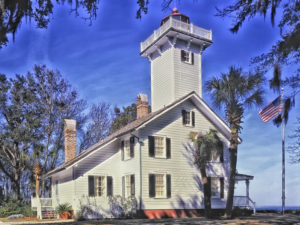 The Aug. 6 mystery got the neurons flowing for photo sleuths who correctly identified it as the Haig Point Lighthouse on Daufuskie Island, an eight-square mile island between Hilton Head Island and Savannah.
The Aug. 6 mystery got the neurons flowing for photo sleuths who correctly identified it as the Haig Point Lighthouse on Daufuskie Island, an eight-square mile island between Hilton Head Island and Savannah.
According to a website about the island, the island’s name is of Muscogee origin and means “sharp feather” because of its shape.
But something we heard recently that was even more interesting – meaning it may or may not be true — was that the world “daufuskie” might be a Gullah interpretation of “the first key” or island. Daufuskie is a long way from the Florida Keys, but it’s something to consider. Anybody know more about this theory?
Congratulation to the most recent gaggle of Mystery Photo sleuths: Marnie Huger of Richmond, Va.; Ray Pantlik and Wes Richburg, both of Charleston; Chris Brooks of Mount Pleasant; George Graf of Palmyra, Va.; Bill Segars of Hartsville; Berry Davenport of James Island; and Tiffany Anne Hodge of the Charleston area.
Segars noted the structure was used as a lighthouse until 1925. “Then it fell into disrepair and was restored in 1967. It has been used as Haig Point Club since then.”
Graf added: “According to scrimshawgallery.com, [it was] built in 1872 by the U.S. Lighthouse Board. Haig Point Lighthouse blinked its first light on Oct. 1, 1873. It was constructed as a guide to captains navigating the shifting sand shoals off the north end of Daufuskie Island as they negotiated the channel between Savannah and Port Royal. Two separate beacons served as a range for Calibogue Sound.
“The structure was built on the tabby foundations of an old plantation house and served sixty or more years before being decommissioned in 1934, after which it fell into a state of disrepair. The house survived years of neglect and a kitchen fire that could have burned the whole structure to cinders. The house in its carefully preserved state has considerable charm and now serves as a place to hold special receptions and as a tastefully decorated inn. The totally renovated lighthouse is again a functional navigational light.”
- Send us a mystery: If you have a photo that you believe will stump readers, send it along (but make sure to tell us what it is because it may stump us too!) Send it along to editor@charlestoncurrents.com.
HISTORY: Gov. Richard W. Riley
S.C. Encyclopedia | Richard Wilson Riley was born on January 2, 1933, in Greenville, the son of Edward Patterson Riley and Martha Dixon. He attended public grade schools in Greenville and was graduated from Furman University in 1954. After college Riley entered the U.S. Navy, serving from 1954 to 1956. While in the navy he was diagnosed with spondylitis, a painful bone disease that caused his spine to curve forward and left him unable to turn his neck. He was determined to pursue an active career, however, and in 1956 entered law school at the University of South Carolina, graduating in 1959. In 1957 he married Ann Osteen Yarborough, with whom he later had four children. In 1960 he joined his father’s Greenville law firm.
In 1962 Riley was elected to the state House of Representatives as a Democrat from Greenville. He served until 1966, when he won election to the state Senate. During his ten years in the Senate, Riley was considered a “young Turk,” one of a group of progressive, reform-minded legislators who pushed causes such as judicial reorganization, home rule, constitutional revision, equitable financing for school districts, and peaceful desegregation of public schools. Riley declined to seek reelection in 1976, but he captured the 1978 Democratic gubernatorial nomination in a runoff and won the general election with sixty-one percent of the vote.
After assuming office on January 10, 1979, Riley pressed reform causes such as merit selection of the state’s Public Service Commission, limitation of nuclear waste dumping in South Carolina, aid for the medically indigent, and a change to the state constitution that would allow a sitting governor to serve a second term. The latter change gained legislative and public approval. As a result, Riley became the first South Carolina governor in history to serve consecutive four-year terms. Reelected on November 2, 1982, with some seventy percent of the vote, Riley capitalized on his popularity to launch his most ambitious reform, a comprehensive effort to overhaul the state’s public school system.
Long an advocate of public schools, Riley made education reform the priority of his second term. After the General Assembly rejected his first legislative package in 1983, Riley changed his approach and sought the ideas of thousands of South Carolinians who turned out at forums designed to solicit public input. Through intense lobbying he gained the support of business leaders and educators for a longer school day, merit pay for teachers, and school accountability measures. A keystone of the plan, which came to be known as the Education Improvement Act (EIA), was a one-cent hike in the state’s sales tax to fund the reforms. Riley’s sweeping education package received grassroots support across the state. Despite determined opposition, the General Assembly approved the EIA in June 1984. It was acclaimed as the most comprehensive school reform package ever enacted at one time and a model of education reform.
After leaving the governor’s office in early 1987, Riley joined the influential law firm Nelson, Mullins, Riley and Scarborough of Columbia, Greenville, and Myrtle Beach. However, the success of his education reform efforts cemented his reputation as one of the nation’s leading public school advocates. Following the election of former Arkansas governor Bill Clinton as president in 1992, Riley was named U.S. secretary of education.
President Clinton charged Riley with launching a national school reform effort similar to that enacted in South Carolina. He unveiled a legislative package designed to set national standards for students and teachers and provide incentives for schools to meet them. It included improvements in federal school aid for needy children, direct loans for college-bound students, and a program to encourage parental involvement in their children’s schooling. When Republicans gained control of Congress in 1994, they set out to eliminate the Department of Education. But Riley’s efforts and popular support for public education ultimately strengthened the department. By the end of Clinton’s second term, Riley had helped the Department of Education reach record levels of federal education spending. After eight years in the post of secretary of education, Riley was hailed in the national press as “one of the great statesmen of education” in the twentieth century and “one of the most decent and honorable men in public life.” In 2001 he returned to South Carolina, where he continued to advance education issues through professorships at Furman University and the University of South Carolina.
- For more on Riley’s leadership in recent years, see the Riley Institute at Furman University.
— Excerpted from an entry by Henry H. Lesesne. To read more about this or 2,000 other entries about South Carolina, check out The South Carolina Encyclopedia, published in 2006 by USC Press. (Information used by permission.)
ON THE CALENDARCALENDAR: From a run and a show to art and wine
![]() Race for The ARK: 7:45 a.m., Aug. 25, downtown Summerville. The 19th annual Thrivent Financial Race for The ARK, a 5K run/walk, is an event to benefit work of The ARK to provide support to families living with Alzheimer’s or related dementia. To learn more and register, click here.
Race for The ARK: 7:45 a.m., Aug. 25, downtown Summerville. The 19th annual Thrivent Financial Race for The ARK, a 5K run/walk, is an event to benefit work of The ARK to provide support to families living with Alzheimer’s or related dementia. To learn more and register, click here.
Mamma Mia! Month-long run at Charleston Stage opens Aug. 31, Dock Street Theatre, Charleston. The popular musical is the opening show of the 41st season of Charleston Stage. The show runs through Sept. 23 at a variety of times with tickets ranging from $33.75 to $70.75. Click here for tickets and more info.
Expressive abstracts: Through Aug. 31, North Charleston City Gallery, 5001 Coliseum Drive, North Charleston. The city’s cultural arts department will welcome a group of works by 35 female abstract expressionist artists who come from across the country. Two thirds of the group will present new mixed media work in the exhibition called “Inside Out: Expressing our Inner Voices.” More info.
Wine Down Wednesday: 5 p.m. to 7 p.m., Sept. 5 and Sept. 19, Old Town Creek County Park, West Ashley. Explore Old Towne Creek County Park, one of West Ashley’s hidden gems, during the second of this four-part springtime event series. Guests will enjoy wine, live music from Shane Clark, and food truck fare from Tamashii. Wine and a commemorative glass are included with admission. Food truck fare is a separate fee. For more information, visit CharlestonCountyParks.com. Fee: $20, or $15 in advance.
Black Ink Festival: 11 a.m. to 5 p.m., Sept. 8, Charleston County Public Library Main Branch, 68 Calhoun St., Charleston. The third annual festival will celebrate African-American books and support local writers. The keynote speaker at 2 p.m. will be nationally-acclaimed writer Terry McMillan. Lots of activities and fun at this free festival, supported in party by Charleston Currents. More info via the Charleston Friends of the Library..
Early morning bird walks at Caw Caw: 8:30 a.m. every Wednesday and Saturday, Caw Caw Interpretive Center, Ravenel. You can learn about habitats and birds, butterflies and other organisms in this two-hour session. Registration not required, but participants are to be 15 and up. $10 per person or free to Gold Pass holders. More: http://www.CharlestonCountyParks.com.
AREA FARMERS MARKETS
SATURDAYS: The Charleston Farmers Market, is back in action from 8 a.m. to 2 p.m. every Saturday through Nov. 24 at Marion Square. A holiday market will be open Dec. 1, 2, 8. 9, 15 and 16.
SATURDAYS: Johns Island Farmers Market operates each Saturday from 9:30 a.m. to 1:30 p.m. year-round with more than 50 local farmers and vendors, food trucks, music and more. The market is located on the campus of Charleston Collegiate School, 2024 Academy Road, Johns Island.
SATURDAYS: The Town Market on James Island are again open. Open 9 a.m. to 1 p.m. every Saturday at the James Island Youth Soccer Club, 871 Fort Johnson Road, James Island.
TUESDAYS: The Town of Mount Pleasant’s Farmers Market is every Tuesday from 3:30 p.m. to 7 p.m. in the market pavilion at Moultrie Middle School, 645 Coleman Blvd, in Mount Pleasant.
WEDNESDAYS. The West Ashley Farmers Market, 55 Sycamore Ave., is open every Wednesday from 3 p.m. to 7 p.m. in Ackerman Park. More.
- If you have an event to list on our calendar, please send it to charlestoncurrents@gmail.com for consideration. The calendar is updated weekly on Mondays.
If you like what you’ve been reading, how about considering a contribution so that we can continue to providing you with good news about Charleston and the Lowcountry. Interested? Just click the image below.
ABOUT CHARLESTON CURRENTS
OUR UNDERWRITERS
Charleston Currents is an underwriter-supported weekly online journal of good news about the Charleston area and Lowcountry of South Carolina.
- Meet our underwriters
- To learn more about how your organization or business can benefit, click here to contact us. Or give us a holler on the phone at: 843.670.3996.
OUR TEAM
Charleston Currents offers insightful community comment and good news on events each week. It cuts through the information clutter to offer the best of what’s happening locally.
- Mailing address: O. Box. 22261 | Charleston, SC 29413
- Phone: 670.3996
Charleston Currents is provided to you weekly by:
- Editor and publisher: Andy Brack, 843.670.3996
- Contributing photographer: Michael Kaynard
- Contributing editor, common good, Fred Palm
- Contributing editor, money: Kyra Morris
- Contributing editor, Palmetto Poem: Marjory Wentworth
SUBSCRIBE FOR FREE
Subscriptions to Charleston Currents are free.
- Unsubscribe. We don’t want to lose you as a reader of Charleston Currents, but if you must unsubscribe, you will have to do it through the email edition you receive. Just go to the bottom of any of your weekly newsletters and click the “unsubscribe” function. If that doesn’t work, please send us an email with the word “unsubscribe” in the subject line.
© 2008-2018, Statehouse Report, LLC. All rights reserved. Charleston Currents is published every Monday by Statehouse Report LLC, PO Box 22261, Charleston, SC 29413.


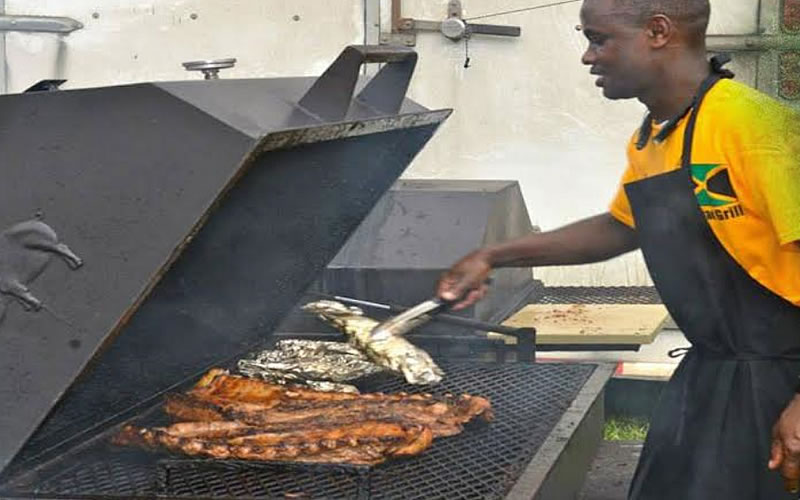
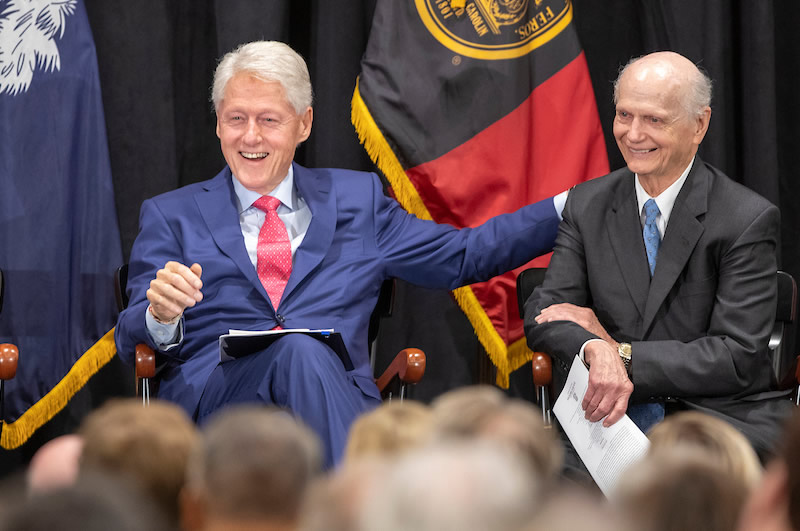
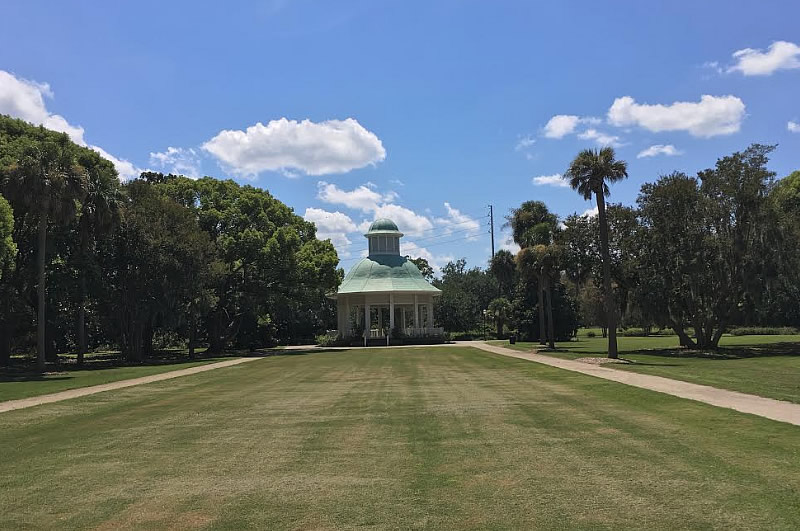
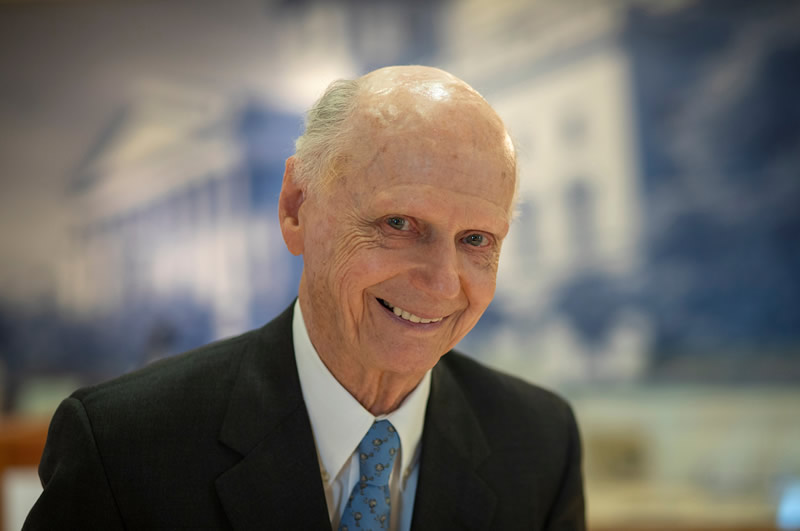

 We Can Do Better, South Carolina!
We Can Do Better, South Carolina!
























